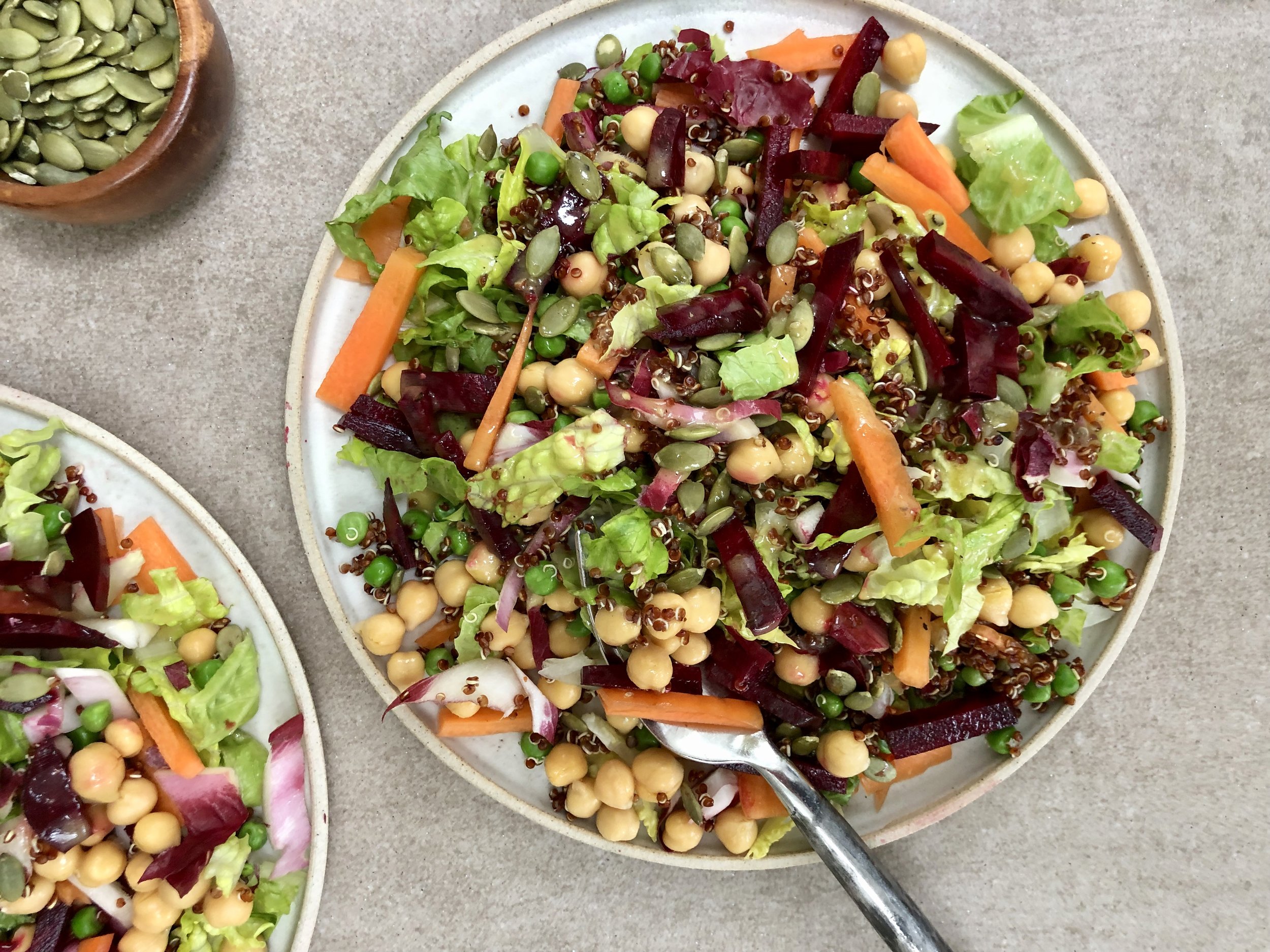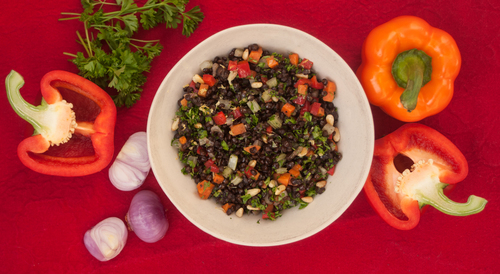How to Support Your Gut Microbiota
Vast ecosystems of microbes live in and on our bodies. Scientists believe there are up to 10 times more microbial cells in the human body than human cells!
Your gut microbiome consists of around 100 trillion microbes!
The largest collection inhabits our guts and is known as the gut microbiota or gut microbiome. You may have heard the term gut bacteria but as the microbes include bacteria, yeasts and other microscopic organisms scientists use the term microbiota. (The term microbiome refers to all the genetic material in a particular environment). Your gut microbiota is unique to you and reflects your journey through life, it starts to develop while you are inside your mother’s womb and is influenced by many factors including your birth, early life, what you do, where you’ve been and what you eat.
This complex ecosystem feeds off foods we eat but it doesn’t just take from us, it provides us with a huge array of health benefits. So, let’s look at what these microbes do for us and how we can keep them happy.
A Healthy Gut Microbiota Benefits You By:
Supporting your immune system
Encouraging normal gut motility
Helping prevent colonisation by unfavourable microbes
Improving your nutritional status (making B vitamins, vitamin K, encourages mineral absorption and metabolises various compounds from our diets for our benefit)
Producing fuel for your gut lining
Managing your mood
Reducing inflammation
Regulating your metabolism and weight
How To Keep Your Gut Microbes Happy
We need to keep these microbes happy and healthy to benefit from all these functions and here are some of the ways you can do so:
Rainbow Salad with Chickpeas and Quinoa
✔ Eat lots and lots of vegetables (aim for 6 + portions per day) and up to 2 portions of fruit. Have a wide variety and eat a rainbow of colour each day!
✔ Include prebiotic-rich foods – these are fibre-rich foods that the beneficial microbes in our gut feed on: onions, garlic, leeks, artichoke, chicory root, dandelion greens, asparagus, bananas, legumes, beetroot, sunflower and pumpkin seeds
✔ Include prebiotic-like foods – such as brown rice, carrots, black currants, dark cocoa, almonds, green tea, barley, oats, flaxseeds and apples. .
✔ Eat resistant starch-rich foods – found in unripe bananas, green peas, legumes, oats that have been soaked overnight rather than cooked but also from potatoes, root vegetables, pasta and rice that has been cooked and cooled – eg eating leftovers the next day.
Top Tip: You can reheat the leftovers but please be careful to cool rice asap after cooking and not to keep cooked rice for more than a day
✔ Eat a variety of polyphenol–rich foods. Polyphenols are a special type of phytonutrient that the beneficial microbes in our gut love. Found in black olives and olive oil, veg like broccoli, spinach, red onions, asparagus, red lettuce, purple and orange carrots; dark chocolate (85% or higher cocoa content); tea; coffee (decaff is fine if you don’t do well on caffeine); red wine (just a glass!!), red grapes skins; nuts & seeds; herbs; cranberries; pomegranate; red dragon fruit; cherries, black currants; blueberries; red and black rice quinoa and wholegrain rye sourdough. All the foods that are dark and dense in colour
Probiotic yoghurt with polyphenol rich berries, linseeds, walnuts and cinnamon
✔ Include probiotic / fermented foods – these contain live bacteria or yeasts that have a positive impact on the microbial balance in your intestine: yoghurt (look for plain, bio-live versions or make your own), unpasteurised cheese e.g. blue cheese, feta, aged parmesan; kefir (fermented milk or you can get water kefir); sauerkraut (fermented cabbage); kimchi (fermented vegetables typical in Korean cuisine).
Top Tip: Do buy unpasteurised versions (ask in your health food shop) or make your own. Apple cider vinegar can be drunk diluted in water (take up to 2 tbsp in a glass of water) or made into a salad dressing
✔ Increase omega 3 fats from oily fish, linseeds, walnuts and reduce saturated fats
✖ Avoid sugar – that’s all sweet foods like biscuits, cakes, muffins, flapjacks etc. and including hidden sugar in foods like ready-made sauces, ketchup, mayonnaise, ready-meals, sushi rice, fruit and nut bars, cereal bars, etc. – have a look at the label!
✖ Avoid artificial sweeteners & sugar replacements like agarve syrup, maple syrup etc.
✔ Extend the overnight fast – ideally 12 hours or more and minimise snacking
✔ Drink plenty of water & herbal teas – around 1 1/2 litres per day
✔ Get enough sleep
✔ Take regular exercise
✔ Get outdoors
✔ Manage your stress – yoga, meditation, relaxing baths, walking the countryside or by the sea
Walking on a Beautiful Beach - It’s Good For Your Microbes Too!








